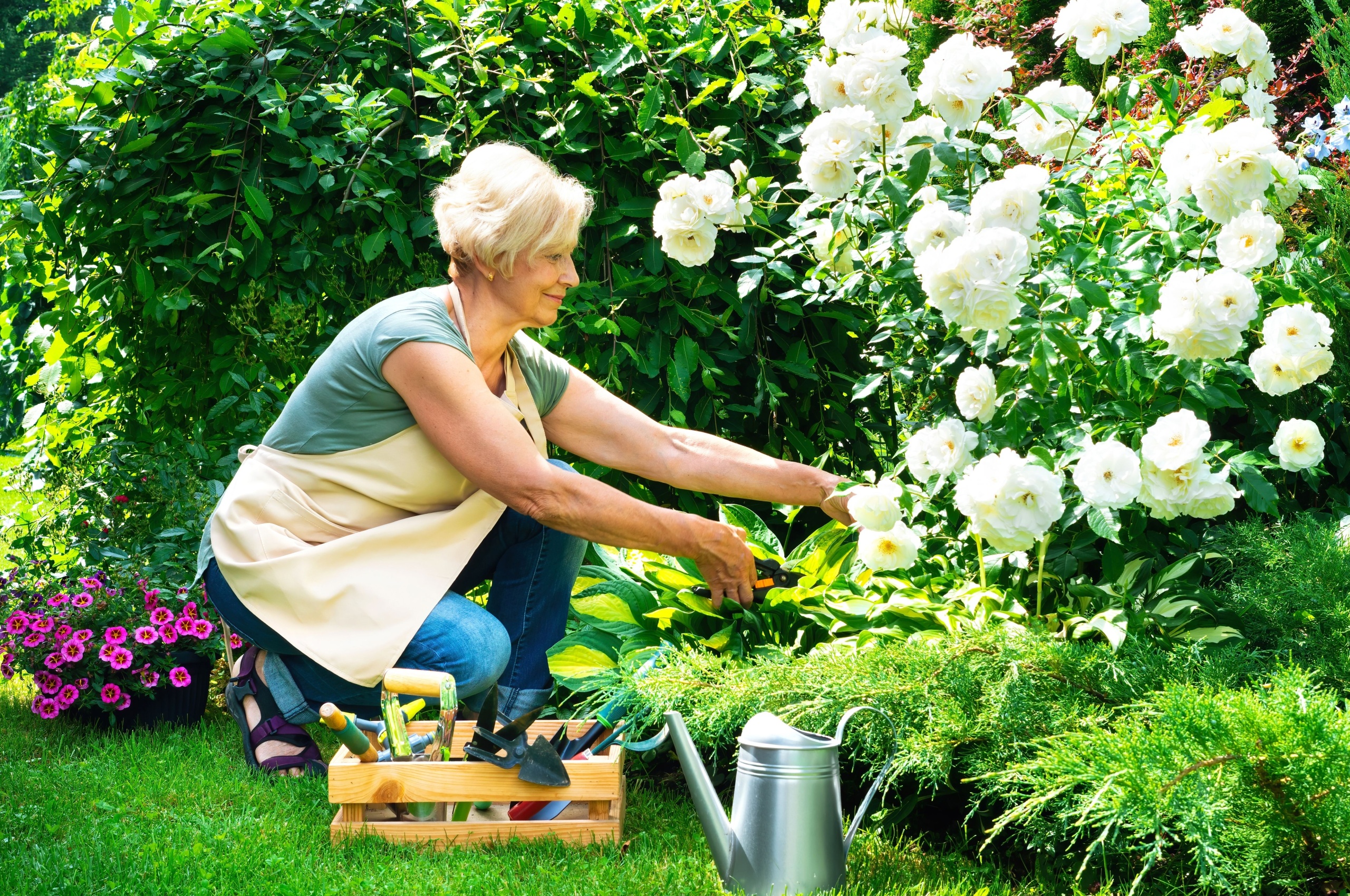Whether you’ve always secretly fancied yourself as the next Monty Don or you simply dream of a less jungle-like garden, knowing how to get started as a beginner can feel overwhelming.
Indeed, for the novice gardener, there’s certainly a lot to learn, from what to plant, when to plant it, and even what names to use – is that a “foxglove” or a “digitalis”?
However, there’s no race to know it all. In fact, one of the joys of gardening is the never-ending opportunity to learn.
As with any hobby, starting small and building your knowledge gradually is the key to success.
Read on to discover four helpful gardening tips for beginners that could help you start your new hobby without any feelings of uncertainty and overwhelm.
1. Have fun planning how you’d like your garden to look
According to the Oxford Learner’s Dictionary, a hobby is “an activity that you do for pleasure when you are not working”.
So, make it fun! You’re more likely to keep up with a hobby you enjoy.
A good starting point is to create a vision of how you want your garden to look. It might be helpful to work through the following steps:
- First, get to know your garden – Think about whether it’s south- or north-facing and try to find out what type of soil you have. It’s also important to consider how much space you have for planting. These factors could affect how you plan your garden.
- Then, think about how you enjoy spending time in your garden – If you love running around with your children or grandchildren, you may want to leave more free space than if you mainly use your garden to sit peacefully reading.
- Next, explore what kind of plants and garden features you’re drawn to – Head to your nearest garden centre and see what catches your eye. Perhaps there are particular colours or shapes you love, or maybe there are certain decorative items that appeal to you. Make a list of your favourites or try cutting out images from gardening magazines to create a vision board.
- Finally, sketch a plan of your chosen area – This doesn’t need to be anything too technical, but it might be helpful to think about how your garden could look during different seasons, and which colours would complement one another.
Having a clear goal to work towards may provide just the inspiration you need to get started.
2. Learn how to plant correctly
Learning a handful of gardening basics will help bring your plan come to fruition and reduce the risk of mistakes, which could leave you feeling frustrated and unmotivated.
Using the most appropriate techniques for the time of year you’re planting and the specific plants and flowers you’ve chosen will give them the best chance to thrive.
The simplest way to learn how to plant correctly is to check the instructions on anything you buy and research online – there’s a wide range of reputable gardening websites with handy tips for beginners.
As a general rule:
- Prepare the soil by watering it and removing weeds
- Add the correct fertiliser in an appropriate amount
- Plant at the right soil depth and time of year.
Following these three steps, in addition to following any plant-specific guidance, could help your plants to grow healthy and strong.
3. Incorporate gardening into your daily routine
It can be hard to stick to hobbies when life gets busy and there are competing demands on your time.
Fortunately, gardening lends itself to becoming part of your daily routine.
Your plants will need ongoing nurturing and maintenance, especially during certain stages of growth and during particular seasons. For example, you might find yourself watering the garden more often in summer.
Indeed, careful maintenance of your plants is crucial for their survival. This might include:
- Watering and feeding
- Pruning
- Checking for signs of disease and decay
- Protecting your plants from frost, birds and insects.
You may want to consider how much time you have to tend to your garden when planning your design.
4. Start with small projects
Starting a new hobby is fun and it can be easy to get carried away with grand ideas.
However, starting small and moving on to larger projects gradually could help you build valuable skills, knowledge, and confidence. It may also reduce the risk of disappointments and could allow you to nurture a healthy, creative hobby that lasts a lifetime.
With gardening, there’s always something new to learn, so there’s no need to race ahead.
Indeed, you might find it fun to join a volunteer garden scheme or club where you could learn from more experienced gardeners while meeting like-minded people.
Get in touch
While we can’t help you design your dream garden, we can help you create a vision for your future and build a long-term financial plan for achieving it.
If you’d like to know more, please email us at hello@intelligentpensions.com or call 0800 077 8807.
Please note
This article is for general information only and does not constitute advice. The information is aimed at retail clients only.

